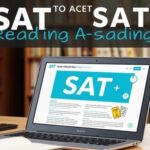While most people acquire the fundamental skill of reading early in childhood, many people never fully develop the ability to read successfully. Effective book reading can improve your understanding, memory, and enjoyment of the content, regardless of whether you’re reading for pleasure, education, or information. We will explore the methods and approaches that can make you a more proficient and productive reader in this extensive book.
Recognizing Reading’s Objective
It’s important to know why you’re reading a given book before delving into efficient reading strategies. Your reading goal will determine how you approach the task and what tactics you use. Here are a few typical reading goals:
Reading for pleasure and delight is entertainment.
Information: Compiling data or studying a certain subject.
Education: Pursuing knowledge for vocational or scholarly endeavors.
Critical Thinking: Examining and analyzing the book’s content.
Determining your purpose will assist you in making goals and choosing the right reading techniques.
Strategies for Pre-Reading
Examine the Content
Spend a few minutes skimming the content before diving right in. Go through the introduction, chapter headers, table of contents, and any summaries or blurbs quickly. This will provide you with an outline of the book’s core concepts and organization.
Establish Objectives
Clearly state your objectives for the reading. Are you trying to learn more about a certain subject, comprehend a particular idea, or just read a good story? You’ll read more efficiently and motivatedly if you have certain goals in mind.
Make Use of Past Information
Link the information to what you already know. Examine your prior knowledge on the subject and how it connects to the book you are going to read. You may establish connections and comprehend new material more efficiently by drawing on your existing knowledge.
Strategies for Active Reading
Notes
Make notes, underline significant paragraphs, and highlight or annotate any areas that particularly interest or pertain to you. Making annotations on the text encourages active engagement with the content and aids with understanding and memory.
Pose inquiries
Consider the material and pose questions to yourself as you read. What is this section’s major idea? What connection does this information have with my prior knowledge? What proof is there for this claim? Asking probing questions about the text promotes better understanding and critical thinking.
Recap
Take occasional breaks to provide your own personal summary of what you’ve read. To make sure you’re understanding the major topics, you can do this after every chapter or section. Reiterating the content through summarization strengthens your comprehension and memory of it.
See
Conjure up ideas or scenarios from the text in your mind. You can better comprehend complicated concepts and fully engage with the material by visualizing it, particularly when reading fiction or descriptive writing.
Establish Links
Connect the book’s ideas to your personal experiences, works of literature you’ve read, or current affairs. Creating links between concepts might help you grasp them better and help them stick in your memory.
Post-Reading Techniques
Examine and Consider
After you’ve finished the book, give it some thought and go over everything you’ve read and experienced. Go over the text’s major concepts, important details, and any new understandings you may have had. Thinking back on what you’ve read can help you comprehend new information and reinforce what you already know.
Talk to Others
Talk about the book with friends, coworkers, or members of online groups. You can gain fresh insights and a deeper comprehension of the subject matter by discussing your ideas and discoveries with others.
Use What You’ve Discovered
Seek out chances to put the information or abilities you’ve learned from the book to use in actual circumstances. Putting what you’ve studied into practice helps you remember it over time and strengthens your knowledge of it.
Advice for Skillful Reading
Take Time Management Action
Set aside time specifically for reading, and try to avoid distractions. Make time for reading a regular part of your day or week, and make sure the space is distraction-free.
Expand Your Word Sense
Increase the size of your vocabulary to improve text comprehension. Try looking up new terms and incorporating them into your own writing and speaking.
Engage in Active Listening
Practice active listening by concentrating on the text and mentally noting or annotating as you go along, whether you’re reading aloud or listening to an audiobook.
Try Out Various Formatting
Investigate several reading forms, including printed books, e-books, audiobooks, and internet articles. You can discover what works best for you and adjust to different situations by trying out different forms.
Take Intervals
During long reading periods, take regular pauses to avoid getting tired and to keep your focus. Your brain can rest and absorb information more efficiently when you take short pauses.
In summary
Effective book reading is a skill that may be acquired via focused practice. You can improve your comprehension, retention, and pleasure of the information by using pre-reading, active reading, and post-reading tactics, as well as successful reading suggestions. Gaining proficiency in the skill of efficient reading will improve your life and broaden your horizons, regardless of whether you read for pleasure, knowledge, or education.





